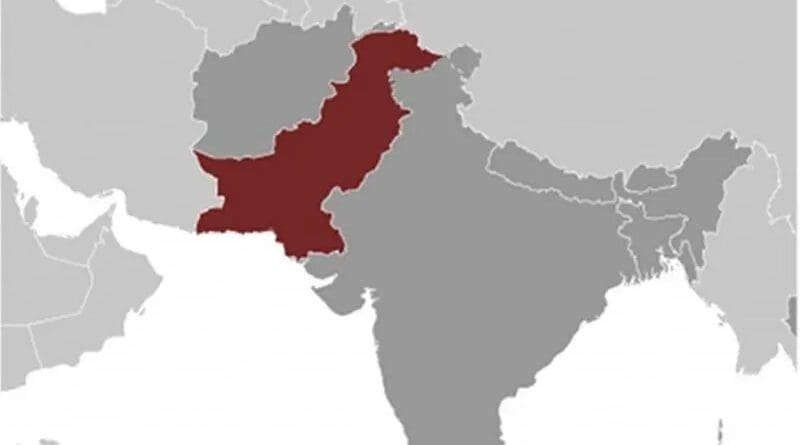Pakistan’s FATF Conundrum – OpEd
Established in 1989 to assist in guarding against money laundering and terrorist financing, the Financial Action Task Force (FATF) is an international policy-making body. Anti-money laundering and counter-terrorism financing (AML/CFT) programmes have been a major focus of the FATF since its inception. A further focus is on determining how effectively and how many governments have implemented effective anti-money laundering and counter-terrorist funding programmes. A nation’s anti-money laundering/counter-terrorism funding apparatus may have strategic vulnerabilities, and other governments and corporations may step up their monitoring and halt dealings with that country. In order to take this step, a designated country must correct issues and enhance anti-money laundering and anti-terrorist financing compliance. To combat money laundering and terrorist funding threats, the FATF instructs its members to take action against individuals and firms from countries that the FATF considers to be high risk.
Anti-money laundering and terrorist funding mechanisms in Pakistan are clearly in need of improvement. An attempt is made to demonstrate that terrorist financing (TF) risks are appropriately recognised and evaluated, and that terrorism financing risk coordination is improving. Legal authorities are looking into every aspect of TF operation. Anti-money laundering and anti-terror funding systems in Pakistan are a priority for the country’s government.
The effectiveness of Pakistan’s AML/CFT system is highly prized by the country’s authorities. The SBP is always trying to strengthen the AML/CFT framework as a whole. The SBP developed an AML/CFT Policy Framework for its regulated institutions in the 1990s. To keep up with the times, it was upgraded in the future. Anti-money laundering and anti-terrorism funding mechanisms are being improved in Pakistan, despite the country’s extensive laws and regulations. Anti-money laundering and counter-terrorist funding measures were significantly strengthened by the government a few years ago. In this instance, the SBP has advised or instructed its members as follows: Several sections of the legislation have been reworked to make it simpler for individuals to comprehend customer due diligence (CDD), correspondent banking, wire transfers/fund transfers, and the minimal documents required to create an account. Guidelines for ECs on TFS have been established to ensure that the Pakistani government follows its Statutory Regulatory Ordinances and Notifications. These recommendations are designed to prevent the financing of terrorism and proliferation by the European Union. Sponsors, shareholders, owners, directors, presidents, and other significant executives cannot run for office if they are subject to FPT. Under United Nations Security Council Resolutions and the Anti-Terrorism Act of 1997, they will not be able to run for office if they are designated/proscribed organisations or people. European Central Bank (ECB) requirements for Know Your Customer (KYC) documents have been increased.
Over the course of the study, Pakistan’s anti-money laundering and anti-terrorism funding mechanisms have improved significantly. To combat money laundering and support for terrorist organisations, there is now adequate legal and technical infrastructure in place. Money laundering and terrorist financing framework deficiencies are being addressed by the government. Improving communication and competency among key agencies would likely assist create favourable conditions for the execution of the action plan and the correction of strategic defects.
Pakistan is still one of those countries that should be avoided at all costs. FATF does not want to remove Pakistan off its “grey list” because of political concerns, and hence, Pakistan has fulfilled all of the FATF conditions to be removed from the “grey list.” The FATF’s working group and plenary meetings will take place in Paris from February 21 to March 4, 2022. These nations’ statuses on their grey and black lists will be discussed in the plenary session. They report on the progress of these nations. According to the FATF’s “grey list,” a list of “jurisdictions that require additional attention,” Pakistan has been on the list since June 2018. Since then, its effectiveness in combating money laundering and terrorist financing has been regularly assessed.
The watchdog has put Israel on the “grey list,” despite many inspections praising the country’s efforts to curb illicit money transfers. An attempt has been made to put Islamabad under the gun to carry out the FATF-approved strategy for tightening controls on money laundering and terrorist financing. By the time of the FATF’s last meeting in October of last year, Pakistan had completed 26 of the 27 actions outlined in its first action plan. A new strategy to combat money laundering was provided by the FATF to Pakistan in June. As of October, Pakistan has completed 30 of the 34 actions included in the two action plans it received. Based on the latest report from the FATF’s regional arm, the Asia-Pacific Group on Money Laundering, the next meeting will decide.
*The author holds an M.Phil in International Relations from National Defence University and freelance writer and can be reached at [email protected].

